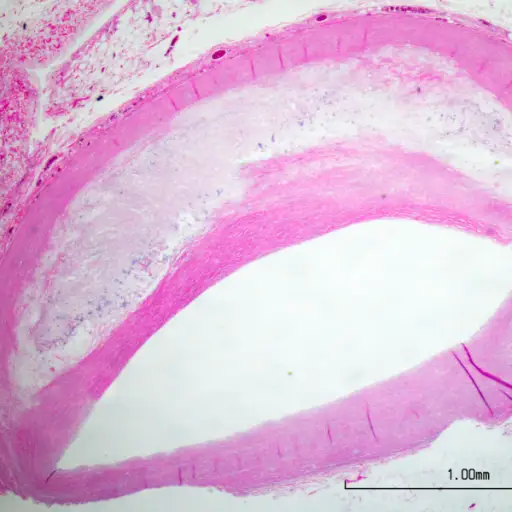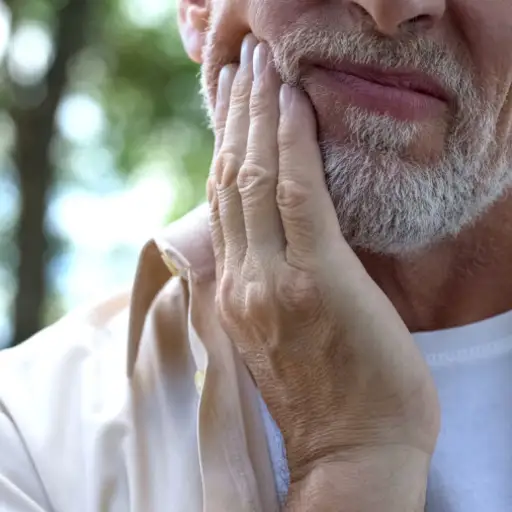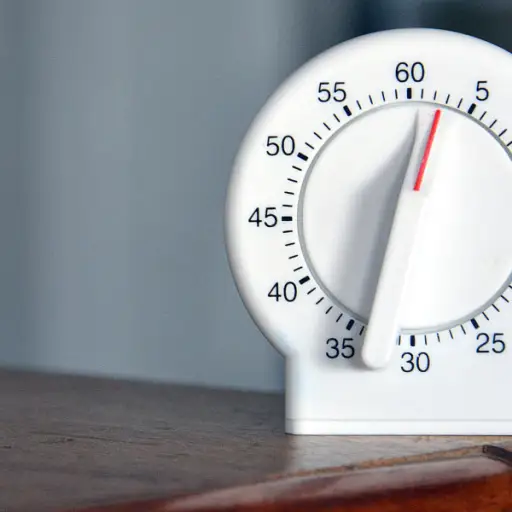Heart Attack vs. Panic Attack: How to Tell the Difference
When a panicattacks strikes, you might feel certain that you’re dying. And because symptoms often include chest pain, rapid heartbeat, and lightheadedness that makes you feel like you’re about to faint, it’s easy to mistake one for a heart attack. You’re not alone in this regard—a lot of people do. In reality, you’re (probably) not experiencing a dangerous cardiac event—your body is just freaking out. Read on to learn the difference between these physical and emotional emergencies.
What Causes a Panic Attack?
When your fear response is triggered, your body reacts. And with some people, it reacts in a really big way even when there's no actual danger. “It’s like you’re looking at a tiger,” says Michael Goyfman, M.D., director of clinical cardiology at Long Island Jewish Forest Hills in Queens, NY. “Your adrenaline starts going, increasing your heart rate and the oxygen capacity of your muscles so you can run away and survive.” Panic disorder (when you have repeated panic attacks) affects up to 5% of the population—as many as 6 million people in the U.S.—according to the Anxiety and Depression Association of America (ADAA), with strong family (genetic) ties.

What Causes a Heart Attack?
Heart attacks, on the other hand, usually occur when a complete or partial blockage in an artery cuts off the normal flow of blood and oxygen to your heart, which in turn, reduces or stops blood flow to your vital organs. Constricting blood vessels can also block essential blood flow—this type of heart attack is called a coronary artery spasm. Either way, when a heart attack happens, heart muscle cells are starved and damaged, usually triggering distinguishing symptoms that can help rule out a panic attack, until the blockage is cleared.
Physical Symptoms During a Panic Attack
Symptoms of a panic attack are intense: A sudden, overwhelming fear grips you. It may come from nowhere, or it may be triggered by something that’s made you anxious. Your heart might beat much too fast, followed by dizziness and even diarrhea. You’re feeling the effects of stress hormones—adrenaline and cortisol—being released and flooding throughout your body. You may also experience chest pain, breathlessness, and your heart hammering away as you battle feelings of doom and a loss of control.
Physical Symptoms During a Heart Attack
Symptoms of heart attackcan vary between men and women. Both sexes often complain of chest pain—the kind that is both intense and undeniable—which can “cause significant pressure,” says Dr. Hirsch. Or, you may feel “a crushing pain sensation that radiates to the neck, jaw, teeth, shoulder, and down the left arm,” he adds. You may also sweat and feel dizzy, especially if you’re female—women often experience nausea and vomiting, too, and are short-of-breath.
Emotions During a Panic Attack
What is similar in both men and women during a panic attack is the presence of strong emotions, says Benjamin Hirsh, M.D., a cardiologist at Northwell Health's Sandra Atlas Bass Heart Hospital in Manhasset, NY. While it’s true that some people may feel chest pain or pressure during a panic attack, neither tends to last more than 30 seconds. What distinguishes other physical symptoms of panic is that “they are often accompanied by a sense of a loss of control over feelings and thoughts,” he adds. However—and this is important—if chest pain leaves and then returns, it’s time to call 911.
Emotions During a Heart Attack
Of course, if you’re having a heart attack you’ll almost certainly experience fear, too—but you may also be focused on the very real symptoms that are happening in real time, with survival being your only goal. According to the American Heart Association (AHA), people tend to struggle emotionallyaftersurviving a heart attack. That’s when loss of control, worry about the future, and uncontrolled anxiety are common. Depression, loneliness, and even anger can occur, too. If you need help coping, contact theAHAfor support.
恐慌感觉长但实际上Short-Lived
When panic strikes time can slow. You may fear being trapped, unable to get help, which makes you panic more—feeling like the attack will never end. In reality, most panic attacks peak within just a few minutes, according to the Mayo Clinic, with a typical attack ending within 20 or 30 minutes, and symptoms abating. Still, the sensations of terror you experienced in those few moments may lead you to avoid the location where the attack occurred, as well as crowds and other triggering situations. If you become preoccupied with future attacks happening, you may have developed panic disorder.
Heart Attacks Go on (and Keep Getting Worse)
Heart attacks generally follow a very different arc. “These symptoms often last 15 to 45 minutes, worsen over time, and are often more tangible than the dizzying symptoms of a panic attack,” says Dr. Hirsch. In other words, chest pain may increase to the point where you feel like an elephant is sitting on your ribcage, breathing becomes more difficult, nausea and dizziness may intensify, and—if not treated—you may even lose consciousness.
Panic Attacks Can Vary Between Men and Women
Panic attack symptoms can be different in men and women, according to the ADAA. Men more often develop rapid, pounding heartbeats—called palpitations—and feel like they’ve lost control over their emotions and thoughts. Women’s panic attacks are often marked by hyperventilation—when you breathe too fast and feel faint—plus a sense of being starved for air. Research shows that women have twice as many panic attacks as men, perhaps because their fear response is more readily activated.

Both Are Medical Emergencies
不要猜测自己:恐慌症是medical emergency, says Dr. Goyfman, especially if you already have a weakened heart. The stress caused by your panic attack may be too much for your heart to tolerate—and that could lead to an actual heart attack. “Stress is a strong risk factor for heart disease,” he adds. If you’re under 40, in good health, and have had panic attacks previously, it’s likely that this is another panic episode. But don’t hesitate to seek medical help if you’re not sure what’s happening to you. Like your mother says: Better safe than sorry.

ER Tests Determine If It's a Heart Attack or Panic Attack
During a heart attack, the cells in your heart suffer damage. This damage triggers your heart to release the proteins troponin T and troponin I into your bloodstream. Doctors in the emergency room will run blood tests to look for elevated levels of troponin, and if they find them, that will help them confirm that your chest pain is being caused by a heart attack. They’ll also conduct an electrocardiogram (EKG), which measures the electrical activity of your heartbeat, and look for changes that are hallmarks of heart muscle damage, as well as for any abnormal heart rhythms.

A Panic Attack May Require Treatment, Too
If heart attack is ruled out, your panic attack may prove to be a harmless, one-time occurrence—but doctors will want to rule out any underlying problems, such as unusual heartarrhythmias, or even panic disorder, since repeated episodes of panic may leave you in constant fear of your next attack. “It’s important to identify your triggers and to address psychological concerns through cognitive behavioral therapy or with medications,” advises Dr. Hirsh. According the Mayo Clinic, antidepressants such as Prozac (fluoxetine) and Zoloft (sertraline), as well as sedatives like Klonopin (clonazepam) and Xanax (alprazolam) are often recommended to treat panic disorder.
Panic Disorder and Treatment:The Anxiety and Depression Association of America. (n.d.). “Am I having a panic attack or a heart attack?”adaa.org/living-with-anxiety/ask-and-learn/ask-expert/how-can-i-tell-if-i%E2%80%99m-having-panic-attack-or-heart-atta
The Anxiety and Depression Association of America.(n.d.). “Facts and Statistics.”adaa.org/about-adaa/press-room/facts-statistics
The National Institute of Mental Health.(2017). “Panic Disorder.”nimh.nih.gov/health/statistics/panic-disorder.shtml
The Mayo Clinic.(n.d.) “Panic attacks and panic disorder."mayoclinic.org/diseases-conditions/panic-attacks/diagnosis-treatment/drc-20376027
Anxiety and Panic Disorders:The Cleveland Clinic. (n.d.). “Are Anxiety Attacks and Panic Attacks the Same Thing?”health.clevelandclinic.org/are-anxiety-attacks-and-panic-attacks-the-same-thing/
Heart Disease in Women:Women’s Heart Foundation. (n.d.) “Panic Attack or Heart Attack.”womensheart.org/content/HeartDisease/panic_attack_or_heart_attack.asp
Heart Arrhythmias:Netherlands Heart Journal: “Panic attacks and supraventricular tachycardias: the chicken or the egg?” (2013).ncbi.nlm.nih.gov/pmc/articles/PMC3547429/
Matt McMillen has been a freelance health reporter since 2002. In that time he’s written about everything from acupuncture to the Zika virus. He covers breaking medical news and the latest medical studies, profiles celebrities, and crafts easy to digest overviews of medical conditions. His work has appeared, both online and in print, inThe Washington Post,WebMD Magazine,Diabetes Forecast,AARP, and elsewhere.










